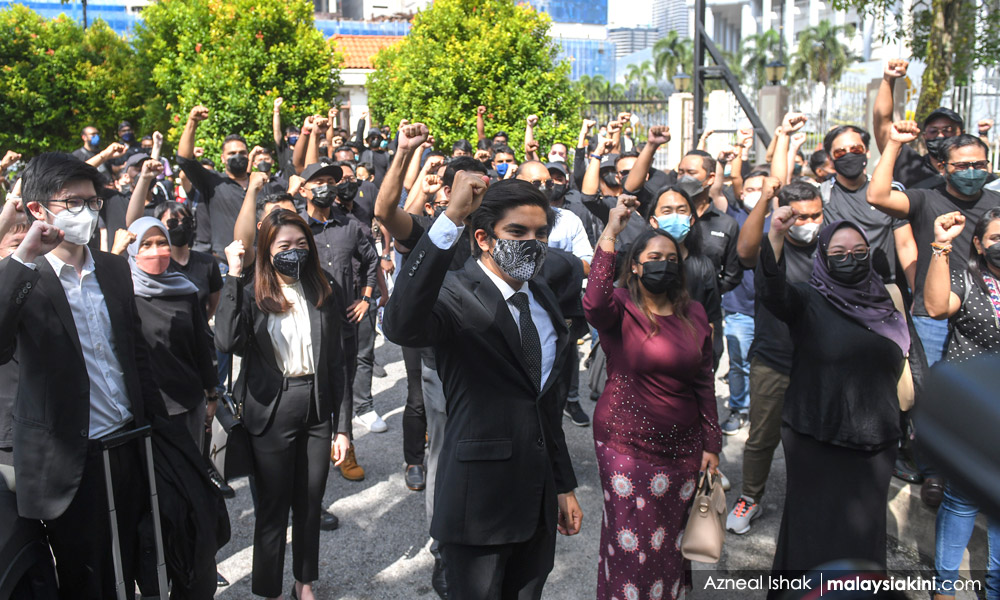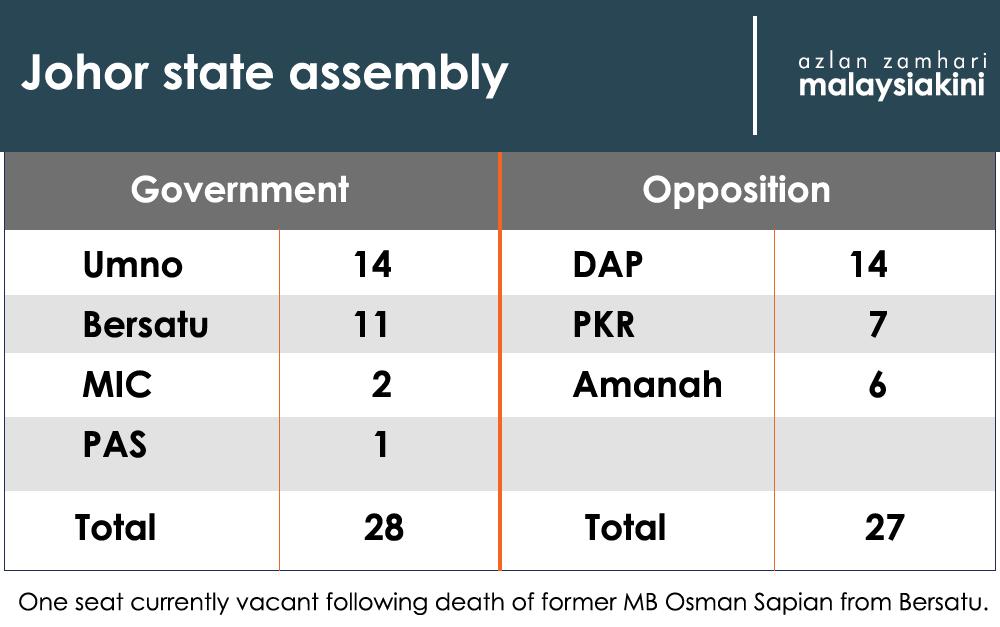The upcoming Johor snap polls will become the first election in which Undi18 and automatic voter registration will come into effect, with the Election Commission (EC) estimating a 30 percent increase in new voters in the state.
This significant increase in new voters, especially the new demographic of young voters between the ages of 18 to 21 years old, was expected to have important implications for the Johor snap polls.
But this is only if these new voters turn up to vote on polling day.
Analysts say this is why they doubt that Undi18 and automatic voter registration will have as big of an impact on the Johor snap polls as initially expected.
Ilham Centre executive director Hisomuddin Bakar said he does not expect the new voters to turn out in full force for the Johor state polls, as they are either apolitical, to begin with, or just as politically fatigued as other voters.
"Based on this situation, with the mood of the voters being the same as it was during the Malacca state election, I think the presence of this new group (of voters) will not bring a big impact to the Johor snap polls," he said to Malaysiakini today.
The Malacca state election last November had seen low voter turnout at 65.85 percent, which is lower than three elections preceding it.
Low voter turnout has traditionally benefited BN as they have a solid base of hardcore supporters and older voters who are more likely to make an effort to go to the polls.
No excitement, extra effort and costs
On the other hand, those who are seen to be more favourable towards the opposition, such as younger voters, fence-sitters and Chinese voters, are expected to have no "excitement" to vote in the upcoming Johor polls, said Hisomuddin.
"If these three groups do not go out to vote, that means BN, who has hardcore voters, will have the advantage," he said.
Political fatigue is not the only reason youth voters are not expected to have a high turnout on polling day in Johor.
Many youths from Johor are also working and living out of state, and having to make the extra effort and bear extra expenses of returning to their home state to vote may be a deterrent to many of them.
Professor Azmi Hassan from Universiti Teknologi Malaysia said he doubts that many of these youths would be willing to make those sacrifices to go back to Johor to vote.
"That is the reason why I said, 30 percent increase (in voters) is very high, but whether these 30 percent will go out to vote, that is the question," he said.
Angry apolitical voters
There are also those of all ages who will be automatically registered as a voter for the first time in the Johor snap polls.
If the political landscape within the past few years has been unable to move these people into registering as voters before this, it is unlikely they will make use of their new voter status in the upcoming polls, Hisomuddin said.
That is unless something major provokes these apolitical voters to feel compelled to vote.
For political analyst Wong Chin Huat, what is likely to provoke apolitical voters to cast their ballots would be anger at the incumbent government or representative.
"They may stay disinterested throughout, but if anything provokes them to vote at the eleventh hour, they will vote to punish, likely the incumbent government or incumbent representative," he said.
New parties, extreme decisions
The Johor snap polls are not just significant because it is the first election where Undi18 and the automatic voter registration will come into effect.
It is also widely expected that the Malaysian United Democratic Alliance (Muda) will field candidates for the first time in the Johor elections, especially as their co-founder Syed Saddiq Syed Abdul Rahman has a foothold as the Muar MP.
Similarly, it will also be the first time Parti Pejuang Tanah Air (Pejuang) will formally contest in an election. They had previously fielded an "independent" candidate Amir Khusyairi Mohd Tanusi in the 2020 Slim by-election before they were officially registered as a party by the Registrar of Societies in July 2021.

This time, Pejuang said they are considering contesting 42 out of the 56 state seats in Johor.
Warisan, which had recently launched in Peninsular Malaysia, had also said it was mulling over joining the Johor state polls.
With these new opposition parties vying for seats along with the more established opposition coalition Pakatan Harapan, it could also affect how the new voters will vote.
Pointing to the 2020 Singaporean general election, Azmi said the opposition party there managed to win four more seats than the previous election because of young voters who are more willing to make "extreme decisions".
"It is not extreme to vote for BN, Perikatan Nasional (PN) or Harapan, as it is the norm.
"So if there are parties such as Muda or Pejuang in the Johor state election, then I think these two new parties will be the beneficiary of the 30 percent increase in voters," he said.
Muda's appeal to youths
Convinced that Muda has great sway over the younger generation, Azmin said any party or coalition that Muda chooses to work with during the Johor state election would benefit greatly as well.
Wong had a similar sentiment, saying that Muda-Harapan cooperation would stand a good chance to emerge as the largest opposition in Umno traditional strongholds.
"Where the votes are split between Umno and PN, Muda may even win a few seats against Umno," he said.
On the other hand, it would be disastrous if Muda were to contest in Harapan-held constituencies, as it may pull enough votes from Harapan and deliver victory to BN instead.
Though Johor Harapan chairperson Aminolhuda Hassan had said they were in discussions with Muda about a potential pact for the Johor elections, Muda has yet to confirm nor deny this matter.
However, not everyone is as convinced of the effectiveness of Muda's appeal to young voters.
Limited by the system
While the party appears to be very popular among the youths on social media, Hisomuddin pointed out that popularity is not how one wins an election under Malaysia's first-past-the-post (FPTP) electoral system.
"The electoral system here has limited the potential of Muda in Malaysia. Those who measure their strength based on their popular vote are wrong under FPTP.
"BN does not care about popularity, they count by every area they are able to win, even if it is by one vote.
"Muda's popularity on social media is not a real gauge of whether they can win in the election," he said.
Despite that, he also agreed that the opposition would be more successful in the Johor state election if they could all work together and avoid multi-cornered fights, which would only benefit BN.
With the 15th general election (GE15) expected to take place in the near future, the upcoming Johor snap polls will be an important litmus test on whether Undi18, the automatic voter registration and these new parties will have an effect on GE15. - Mkini




No comments:
Post a Comment
Note: Only a member of this blog may post a comment.